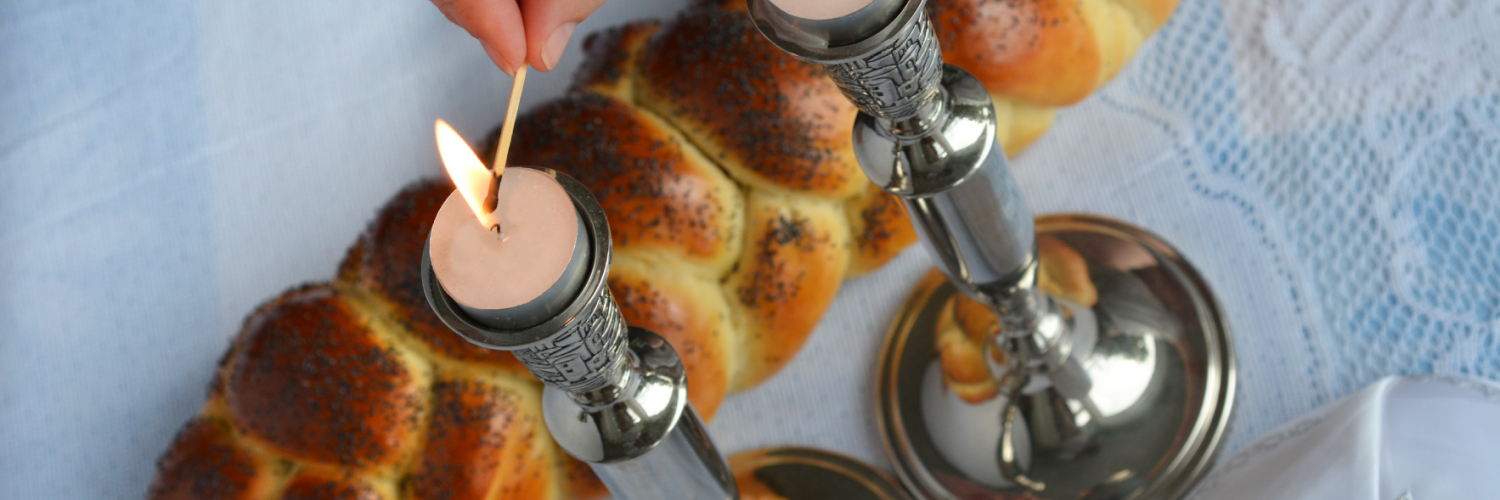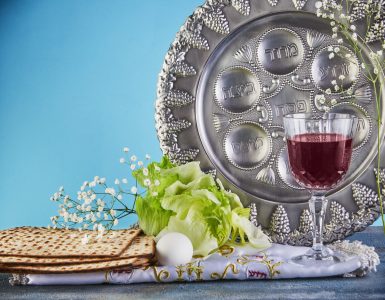During the summer months, many families accept Shabbos early, davening Maariv and commencing the Shabbos Seuda (meal) before Sh’kia (sunset). This is often done for convenience, as it is difficult for small children to stay awake for the Seuda if it only begins after nightfall.[1]
Early Shabbos poses an interesting Halachic question for medical professionals. They often receive calls or must perform lifesaving acts that require Chillul Shabbos throughout the entire duration of Shabbos. Although Chillul Shabbos for Pikuach Nefesh is certainly permissible, may these individuals voluntarily accept Shabbos early and thereby create the need to be unnecessary Mechalel Shabbos during this time?
Here are some common examples:
- A medical professional works in a nursing home and is assigned to the Friday evening shift. Most nursing homes do not postpone Friday evening dinner because the residents find it difficult to wait as eating late can cause them discomfort and because they often need to take their medication at a fixed time along with food. The professional wishes to accept Shabbos early with the residents in order to Daven and eat the Shabbos Seuda together with them. However, he knows that she is often required to perform activities that involve Chillul Shabbos on the grounds of Pikuach Nefesh. Is he permitted to accept Shabbos early, or must he wait until the last possible moment before Sh’kia?
- A doctor knows that she will need to drive into the hospital for a Friday night shift that begins before Sh’kia. However, if she delays accepting Shabbos until she arrives at the hospital, she will not be able to Daven properly and will miss eating the Shabbos Seuda with her family. May she accept Shabbos early and then drive to the hospital?
Hagaon Rav Asher Weiss Shlit”a addresses a further related scenario in an (as yet) unpublished Teshuva. May soldiers in active service who are scheduled to commence a vital operation shortly before sunset accept Shabbos early in order to Daven and eat their Seuda before embarking on their operation? Although the operation is permitted on Shabbos on the grounds of Pikuach Nefesh, in this instance they will have voluntarily imposed this desecration on themselves by accepting Shabbos early.
It is important to point out that although the Rishonim disagree as to whether there is a requirement of Tosefes Shabbos[2], and if there is, whether the obligation is mid’Oraisa or mid’Rabbanan, all agree that it is permissible to choose to accept Shabbos early[3] and the acceptance is Halachically binding. From that time, one may not violate the laws of Shabbos.
Therefore, even if it is not yet Sh’kia, one who has accepted Shabbos early can only desecrate Shabbos if it is required for Pikuach Nefesh. Hence our question: may one knowingly and voluntarily put oneself in a situation that will require desecrating Shabbos on the grounds of Pikuach Nefesh?
There is a lengthy discussion in the Poskim about which circumstances permit a person to set sail or set out in an intercity convoy when it is definite that he will have to desecrate Shabbos while out at sea or in the wilderness. The consensus is that it is permitted if the travel is for Mitzva purposes (Shulchan Aruch, O.C., 248).
On the other hand, the Gemara (Eruvin 67b) debates whether is it permissible to circumcise an infant on Shabbos when the hot water (that was prepared before Shabbos) was accidentally spilled before the Bris.[4] If we proceed with the circumcision, we will be permitted to heat new water on the grounds of Pikuach Nefesh. On the other hand, perhaps it is incorrect to proceed with the Bris knowing that it will create the necessity for Chillul Shabbos. The Gemara concludes that one should find a way to heat new water that does not require violating the laws of Shabbos, however, it does not indicate what the Halacha is in a situation where that is impossible. The Ba’al haMa’or rules that one may not circumcise the baby but the Ramban rules that one should.
Although it is tempting to draw a parallel between our question and that of circumcision, there is a key difference. When it comes to Bris Mila, the Mitzva requires it to occur on the eighth day, even if it falls on Shabbos. The question is whether to proceed with the circumcision if the water has spilled and performing the Mila will create a need for Chillul Shabbos.In that scenario, the Ramban rules that one must circumcise the infant, as we extrapolate from the Heter of the Bris itself to override Shabbos to the procedures afterward that also require desecrating Shabbos. In our case, however, the medical professional is voluntarily creating the need to desecrate Shabbos.
(As an aside, some infer from the ruling of the Ba’al haMa’or that it is a Torah prohibition to put oneself into a situation that will subsequently require desecrating Shabbos on the grounds of Pikuach Nefesh. Were it only a Rabbinic prohibition, it would surely have been waived to allow the Bris to go ahead.)
The Kehilos Yaakov[5] attempts to reconcile the two seemingly contradictory Halachic rulings. How is it that on the one hand it is permissible to set out on a perilous journey for Mitzva purposes despite the foreknowledge that it will lead to Chillul Shabbos, yet on the other hand some forbid performing the Mitzva of Mila when it will require subsequent Shabbos desecration? He suggests that the difference lies in the time that the causative action is performed. If it is performed on Shabbos, as in the case of Mila, it constitutes a Torah prohibition. But when it is performed before Shabbos, such as setting out on a perilous journey, it is only a Rabbinic prohibition, and it is waived in the face of a Mitzva. Rav Nissim Karelitz zt”l (Chut Shani, Shabbos, 1:8) agrees with this distinction. However, others disagree, arguing that even when the primary activity is performed on Shabbos, it does not constitute a Torah prohibition (see Shulchan Shlomo[6] 248:1).
In our case, Rav Asher asserts that accepting Shabbos early is analogous to other activities that invite the requirement of Chillul Shabbos and it is therefore forbidden to accept Shabbos early. Davening properly and eating the Shabbos meal with one’s family are Mitzvos, and, as explained above, some permit performing an activity (that will create a requirement for Chillul Shabbos)before Shabbos when a Mitzva is performed as a result. However, this leniency does not apply in our case since the activity does not precede Shabbos.
Rav Asher adds that the aforementioned Heter to set out on a perilous journey, only applies when it is not certain that one will have to subsequently desecrate Shabbos. It does not extend to someone who knows with certainty that he will have to subsequently desecrate Shabbos, such as the doctor who must drive into the hospital and the soldiers who must conduct their operation.
This distinction between possible and certain subsequent desecration explains two otherwise contradictory rulings of the Mishna Berura:
Nowadays, if the honorable government designated a task involving Melacha to military personnel to be completed by Shabbos afternoon, they are obligated to prepare for the task in advance so that they will not be required to desecrate Shabbos, as the government did not demand that it specifically be performed on Shabbos. (Sha’ar haTziyun 344:9)
He deduces this from the Halachic treatment of a person who travels through the wilderness and loses track of the weekly calendar but knows that it is currently the eighth day following his departure. The Acharonim rule that since that day is certainly not Shabbos, as he certainly did not depart on Shabbos, and all the other days potentially are Shabbos, he must perform all tasks that require Melacha on that day.[7]
However, the Mishna Berura also rules (330:1) that it is “appropriate” to prepare everything that is needed to deliver a baby on Shabbos beforehand to avoid unnecessarily desecrating Shabbos. His respective choice of words in these two rulings implies that there is no obligation for a midwife to prepare in advance of Shabbos, whereas military personnel are obligated to prepare in advance. Why are they treated differently?
Rav Asher suggests (Minchas Asher Shemos, 38) that the difference lies in the degree of likelihood that one will have to be Mechalel Shabbos. When the desecration is certain, such as in the case of the soldiers, one is obligated to do as much of the Melacha as possible before Shabbos. But where it is doubtful whether Chillul Shabbos will be necessary, such as a pregnant woman at term who might deliver on Shabbos, it is only recommended to prepare so that Chillul Shabbos won’t be necessary, but it is not mandated. [8]
While the discussion thus far points to the conclusion that medical professionals may not accept Shabbos early if this will require them to be Mechalel Shabbos during that Tosefes Shabbos, some have suggested a solution based on an interesting line of reasoning advanced by contemporary Poskim.
Some Acharonim explain that the Halachic basis of the validity of early acceptance of Shabbos before Sh’kia is that it constitutes a Neder – a vow (see the Taz O.C. 263:3). Accordingly, some say that one can tailor this vow to suit one’s needs. In other words, one may accept the laws of Shabbos upon oneself in all situations other than those which present concerns of Pikuach Nefesh. This would mean that one must follow the laws of Shabbos in all situations that do not constitute Pikuach Nefesh while conducting himself as if it were a weekday in all situations that do.
However, Rav Asher rejects this proposition. He argues that accepting Shabbos early does not simply operate within the standard framework of the laws of Nedarim; it operates within the framework of the laws of Shabbos, such that one can initiate the Shabbos day using a Neder. Consequently, it is not possible to partially accept Shabbos; it is either Shabbos or it is not.
To conclude, it is forbidden to accept Shabbos early if it will definitely cause additional Chillul Shabbos on the grounds of Pikuach Nefesh. We must note that this is only an issue when one will have to be Mechalel Shabbos before Sh’kia during the time he voluntarily imposed the laws of Shabbos on himself. There would be no issue if he can postpone all Chillul Shabbos until after Sh’kia when everyone must keep the laws of Shabbos regardless.
A further takeaway is that medical professionals working Friday evening shifts should accept Shabbos as late as possible – just a few minutes before Sh’kia. Even in places where it is customary to accept Shabbos significantly before sunset (such as 40 minutes in Jerusalem), medical professionals on duty should not follow suit to avoid unnecessary Chillul Shabbos.
[1] Many Halachos pertain to accepting Shabbos early, such as whether Maariv must precede the meal, but are beyond the scope of this discussion.
[2] Accepting Shabbos some time before sunset “l’Hosif Min haChol al haKodesh“ (to add from the mundane to the holy).
[3] [Editor’s note: Although not before the time of Plag haMincha, 1.25 Halachic hours before Sh’kia.]
[4] In Talmudic times, it was considered life-threatening if an infant was not washed with hot water immediately after the circumcision.
[5] The Steipler Gaon, R’ Yaakov Yisrael Kanievsky zt”l (1899-1985).
[6] Psakim of R’ Shlomo Zalman Auerbach zt”l (1910-1995), collated by R’ Simcha Bunim Leizerson.
[7] [Editor’s note: On all other days, he may only perform Melachos that are absolutely necessary (“K’dai Chayav”).]
[8] However, the Chasam Sofer in Shu”t Y.D. 338 seems to rule that a midwife is also obligated to perform as many of the Melacha tasks as possible before Shabbos. It is not merely “appropriate”.















Add comment